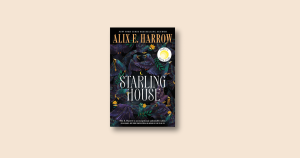Review by Danielle Aylward
Once a thriving centre of stockyards and sheep stations, years of punishing drought have petrified the land and Nannine has been whittled down to no more than a stoplight, a couple of bars, and a police station.
This setting of bustling-township-turned-ghost-town is the bedrock of Shelley Burr’s debut novel WAKE, published by Hachette Australia this year. Burr’s crime-fiction work opens with an introduction from Mina McCreery, twin sister of the kidnapped Evelyn. Burr dives shamelessly into Mina’s experiences as Private Investigator Lane Holland busts his way onto the scene, keen to find answers for a case long turned cold. But can Holland crack the case in a town brimming with unease and half-truths? Or will the ghosts of the past come back to haunt them both before the case can be closed?
These are the questions that plagued me as I tore through the pages of Burr’s novel, determined to find the answers I needed. Burr’s prowess as a writer is evident in her astute depictions of the qualities we love about people and the complex relationships we form with those around us. Meanwhile, I couldn’t help but admire Burr’s discernment of life in rural Australia, which had me enamoured from the first page to the last. Burr does not hesitate to explore complex themes throughout her novel, and spares nobody on their journey to the truth behind Evelyn’s disappearance.
From the outset we are placed in a tiny rural town forgotten by most, and seen as a dot on the map to others. Reading the story through a third-person lens invites us to view the unfolding action as both actor and audience, while observing the responses of secondary characters surrounding the protagonists. As a person raised in a small rural town in Queensland, I can relate to Mina’s feelings of isolation as she battles media attention, conspiracy theories, and the complexity that a newcomer brings to her life. From the beginning, we are privy to Mina’s complicated emotions and grief over someone who has never actually been found, as well as the endless grapevine of gossip that strangles Mina with each new twist. In a place so small there are only so many possibilities, and Burr’s skilled writing ensures we have our investigator’s hat on immediately, stalking each page to uncover who really took Evelyn that night.
This desire to know the truth had my mind churning with speculation, reading beyond the lines to examine the true meaning behind every look, every interaction and each history of Nannine’s residents. Burr’s plotting is delivered with the finesse and boldness known only to the most experienced of authors. She engages us from the beginning, giving us a front-row seat to the paths that led the characters to the book’s opening, and how their lives have intertwined in the most unexpected and authentic ways. Burr shows us through her plotting that people unite when it is possible – the human spirit is the best option in even the most dire of circumstances.
While Burr’s plotting remains consistent, she effectively relies on flashbacks and parallel plotting to spotlight the voices of the voiceless. This gives readers a chance to familiarise themselves with secondary characters, and steer clear of any presumptions or stereotypes they might otherwise support. Her ability to maintain tension is clear through her controlled use of pacing, which accelerates to carry the action forwards, and decelerates when she hones in on the daily goings-on of her characters. The plotting not only provides insight into her characters, connections, and histories, but also allows readers to dabble with our own ideas about the true motives and actions resulting in Evelyn’s disappearance.
Burr’s storytelling reminds me of Jane Harper’s ability to illustrate small town life in The Dry, through the exploration of intergenerational trauma, emotional wounds, and buried grief. As a debut novelist, Burr hits the nail on the head with her interpretation of the whirlpool effect that a single event can have on a person, a family, and an entire region. Burr’s knack for seamlessly transitioning from a small-town interaction to personal emotional turmoil is unparalleled. It is not a simple task to write about small-town traumas and life on the land, and yet Burr does both with ease, making her crime-fiction novel WAKE unputdownable for readers of any demographic.
Danielle Aylward is a fourth year Creative Writing student at QUT who is passionate about publishing, editing, and writing. She is developing her portfolio with submissions in local magazines, while also working on longer pieces.








